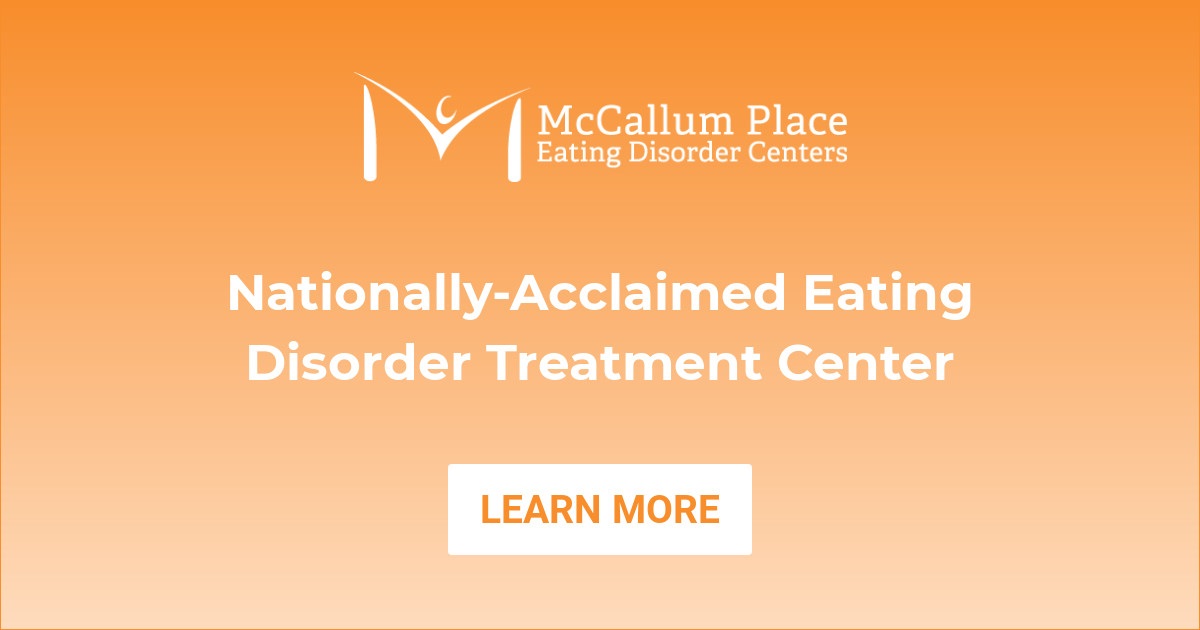- Calls to this hotline are currently being directed to Within Health, Fay or Eating Disorder Solutions
- Representatives are standing by 24/7 to help answer your questions
- All calls are confidential and HIPAA compliant
- There is no obligation or cost to call
- Eating Disorder Hope does not receive any commissions or fees dependent upon which provider you select
- Additional treatment providers are located on our directory or samhsa.gov
The Illusion of Control in the Development of Eating Disorders

Contributor: Staff at McCallum Place
It was Hilde Bruch, a prominent doctor, professor, and researcher in the late 1900s, who highlighted the role of control in the development and maintenance of eating disorders. As one of the early contributors to the knowledge of eating disorders and in studying their underlying factors and causal relationships, it was specifically through her work that the behaviors associated with anorexia nervosa were understood as one’s attempt to achieve “mastery” in one particular area of life in an otherwise chaotic existence [1].
Thus, under her direction, the symptoms of anorexia came to be correlated with an individual’s underlying sense of powerlessness in the face of life’s stressors, and a general lack of control. Others understood similarly that for those individuals, exerting control over their eating behaviors was perceived as a success in a world where they viewed themselves as a failure in many other areas of functioning.
While research has historically focused on individuals with anorexia nervosa, studies that have included bulimia nervosa have generally found no difference when examining the many facets of control, indicating the potential benefits for understanding the function of control across eating disorder diagnoses.
Fixation on regulating one’s eating behaviors in these cases is theorized to “benefit” individuals with eating disorders by allowing them to avoid their negative emotions in the absence of more adaptive methods of coping. The disorder rises to power when one’s compulsion to control their eating habits is left unchecked and unrestrained, and they become overrun by their own need for discipline [2].
Understanding the Facets of Control
Other aspects of control also emerged from the research, whether in viewing one’s success in regulating weight and shape as a measure of their self-control and self-worth or through discovering the effects of the following factors on the prevalence of eating disorder symptoms:
External locus of control: The measure of locus of control seeks to understand the extent to which individuals believe that they are in control of the outcome of events in their life.
Believing in one’s power to dictate their own fate would correlate with a high internal locus of control, as opposed to a locus of control that is dependent upon external factors, whether one believes that they are at the will of powerful others or that their future is left in the hands of fate or chance. Studies have also shown that women who report higher levels of eating disorder pathology tend to have higher levels of externality [2].
Call McCallum Place for Help 888-484-9414
“I often feel like I have little control over anything in my life and what happens to me.”
Feelings of ineffectiveness: This facet of a diminished sense of control is theorized to be dependent upon standards of perfectionism and self-criticism in those at risk for developing an eating disorder [3], and as the disorder progresses, reflects one’s feelings of general inadequacy and worthlessness. These feelings are known to be distributed across a variety of areas of life functioning for these individuals, including social effectiveness, personal independence, and self-esteem [4].
“I will not be able to live up to the standards set for me by others or by myself.”
“I don’t have what it takes to be a good friend/on my own/successful in life.”
Fear of losing control: Perhaps the most salient perpetuator of eating disorder pathology is one’s fear of losing control. Although the other factors appear to effectively explain what may place a person at risk for developing an eating disorder, it appears that one’s fear that they may no longer employ their chosen coping skill in the face of life’s difficulties is what keeps them stuck in their pathology. Some might describe this fear as the part of them that doesn’t actually want to recover, centered upon the belief that “if they do, they will be fat” and perhaps even lose their identity.
Some additional maladaptive fear-driven beliefs include a fear of:
Losing control over one’s body: “If I put on weight, I will have failed in the one area I thought I could control.”
- What if I actually start to enjoy food?
- What if I relax and then can’t stop putting on weight?
- What if I have to buy bigger clothes?
Losing control of one’s identity: “This will change how other people see me.”
- What if others comment on my weight? (Whether good or bad, I’ll lose their support, and they’ll change the way they look at me.)
- Who will I be without my eating disorder? (It will be difficult facing the world with my new identity as a recovered person.)
- How will I be able to face the world? (I’ll be left defenseless with nothing to hide behind.)
 Losing control of one’s emotions: “I will lose my safety net.”
Losing control of one’s emotions: “I will lose my safety net.”
- How else will I feel special?
- How else will I cope with my feelings?
- How else will I punish myself?
When thoughts like these start to take over, it can be difficult to believe that change is possible, or even that change is beneficial, as it appears to come at quite a high cost. True, in recovery from an eating disorder, all of these fears, beliefs, and feelings will need to be attended to, reworked, and replaced with new beliefs that are grounded in truth.
Who Is Controlling Who?
Often, in the progression of the eating disorder, we end up surrendering the very thing that first appealed to us: control.
However, in recovery, what was once left unchecked and unrestrained will be made to stand trial for the deception and illusions it promised. With practice, the right support, and finding a belief in your own merits and abilities, you can learn to sidestep the pitfalls of the compulsive need to control and begin to overrule your eating disorder once again.
Sources:
[1] Freidenreich, Harriet. “Hilde Bruch.” Jewish Women: A Comprehensive Historical Encyclopedia. 1 March 2009. Jewish Women’s Archive. (Viewed on March 12, 2019) <https://jwa.org/encyclopedia/article/bruch-hilde>.[2] Froreich, F. V., Vartanian, L. R., Grisham, J. R., & Touyz, S. W. (2016). Dimensions of control and their relation to disordered eating behaviours and obsessive-compulsive symptoms. Journal of Eating Disorders,4(1). doi:10.1186/s40337-016-0104-4
[3] Wade, T. D., Wilksch, S. M., Paxton, S. J., Byrne, S. M., & Austin, S. B. (2015). How perfectionism and ineffectiveness influence growth of eating disorder risk in young adolescent girls. Behaviour Research and Therapy,66, 56-63. doi:10.1016/j.brat.2015.01.007
[4] Wagner, S., Halmi, K. A., & Maguire, T. V. (1987). The sense of personal ineffectiveness in patients with eating disorders: One construct or several? International Journal of Eating Disorders,6(4), 495-505. doi:10.1002/1098-108x(198707)6:43.0.co;2-i
About The Sponsor
McCallum Place is an eating disorder treatment center with locations in St. Louis, Missouri, and Kansas City, Kansas. We provide comprehensive treatment for adolescents and adults. We also offer a specialty treatment program for athletes who are living with eating disorders. Our experienced treatment team works closely with each patient to ensure that they play a central role in their recovery process. We offer a full range of services to meet the unique needs of each patient and address all issues related to the treatment of eating disorders.
is an eating disorder treatment center with locations in St. Louis, Missouri, and Kansas City, Kansas. We provide comprehensive treatment for adolescents and adults. We also offer a specialty treatment program for athletes who are living with eating disorders. Our experienced treatment team works closely with each patient to ensure that they play a central role in their recovery process. We offer a full range of services to meet the unique needs of each patient and address all issues related to the treatment of eating disorders.
The opinions and views of our guest contributors are shared to provide a broad perspective of eating disorders. These are not necessarily the views of Eating Disorder Hope, but an effort to offer a discussion of various issues by different concerned individuals.
We at Eating Disorder Hope understand that eating disorders result from a combination of environmental and genetic factors. If you or a loved one are suffering from an eating disorder, please know that there is hope for you, and seek immediate professional help.
Published on April 9, 2019.
Reviewed & Approved on April 9, 2019, by Jacquelyn Ekern, MS, LPC
Published on EatingDisorderHope.com

The EatingDisorderHope.com editorial team comprises experienced writers, editors, and medical reviewers specializing in eating disorders, treatment, and mental and behavioral health.


